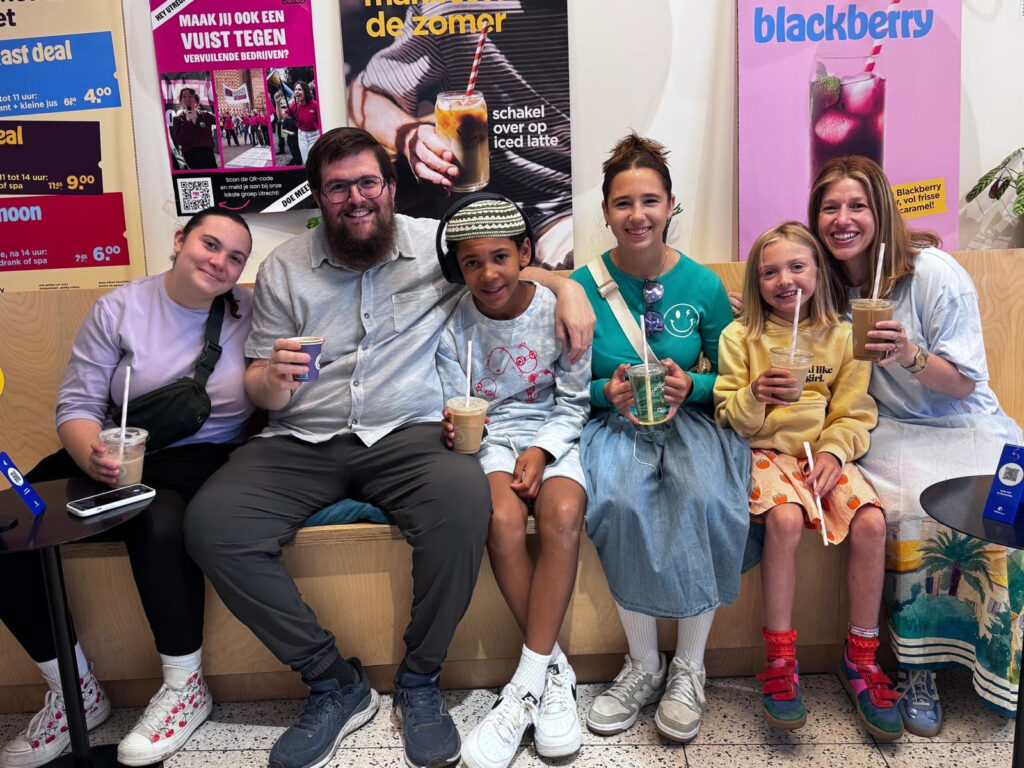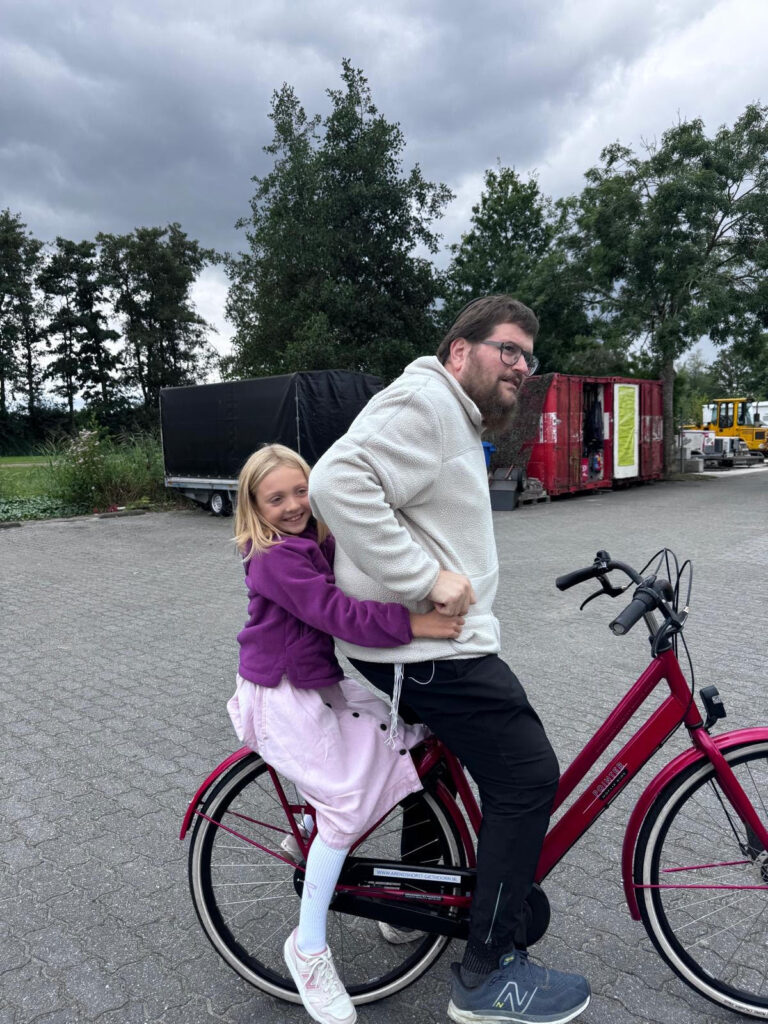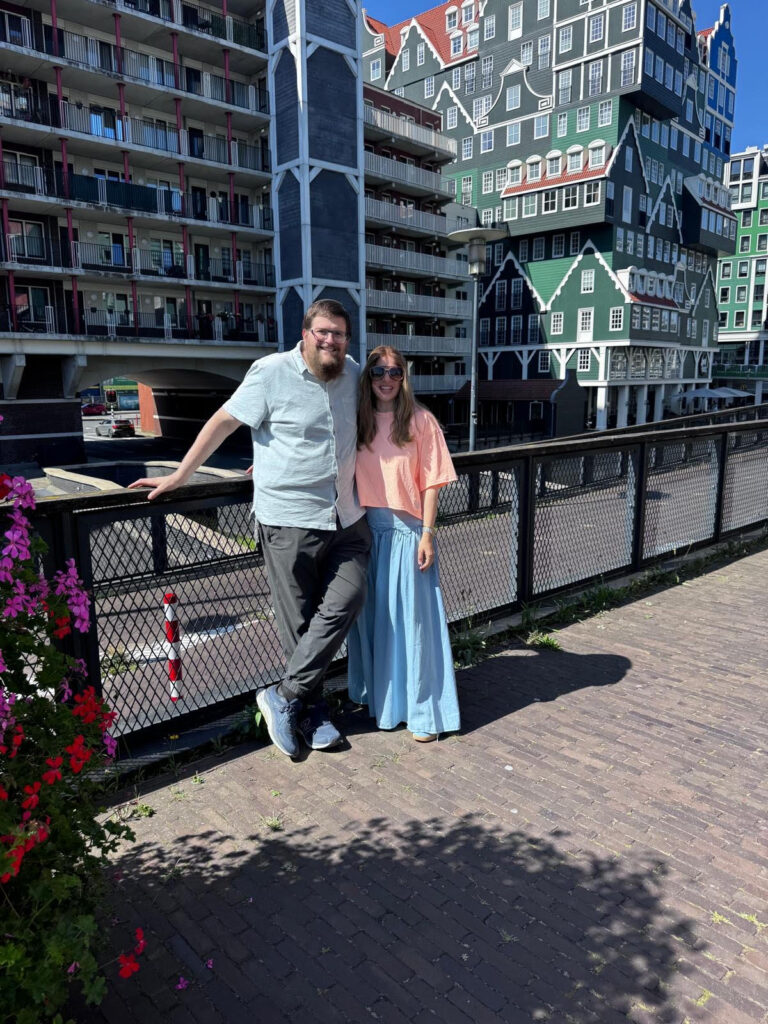Musings Of A Shliach From Montana


Elul is here. The “King is in the field,” waiting to hear our prayers and requests, always available to us. So, we blow shofar, recite daily Tehillim as instituted by the Baal Shem Tov from Rosh Chodesh until Yom Kippur, and add L’David Hashem Ori into our daily davening. Introspection, thoughtfulness, and cheshbon hanefesh are beautiful aspects of the Jewish experience.
I didn’t write last week. It was the first time in many years that I skipped a week, and it was deliberate. I needed to focus. Chavie and I live super busy lives of serving Klal Yisrael 24/7. So, whenever possible, we take time to go away with the kids so we can spend time with them on their terms, doing the things they like to do. Because, after all, they are the most important people in our lives. And while kids aren’t generally perfect travelers, overall, they rock it.
So, after a very busy Shabbos Nachamu, we left Bozeman and traveled to Europe to spend two weeks in the Netherlands and Belgium as a family. (I will write, G-d willing, a separate article about my observations on being visibly Jewish in the Europe of 2025.) I wrote my Eikev article while flying to Amsterdam and I skipped last week so I didn’t have the pressure to get the article in on time so I could totally focus on my family.
I’m glad I made that choice.
We are taught by the Alter Rebbe in Likutei Torah that in Elul, the “King is in the field,” which means that Hashem is constantly available to us so we can reconnect and return home to who we really are. He allows us to enter the Yamim Noraim of Rosh Hashanah and Yom Kippur ignited with the will to connect to Him with love, fear, and awe, making 5786 a year of infinite berachah ad bli dai.
At times, I find it hard to focus inward, to converse with my neshamah, when so much of what I do is outward, helping the neshamos of Hashem’s beautiful children. Of course, the work is vital and holy, but inward focus is vital, even for those doing holy work. Being alone with the family allows me to think about priorities, about chinuch, about health, about who I am and who I want to be, about my marriage and how be a better husband, how to be a Yid that is worthy of being chosen at Har Sinai, how to better serve HaKadosh Baruch Hu, and how to represent my dear Rebbe, zt’l, in the best way possible, embodying an unyielding love and devotion to Klal Yisrael.
Time away does help.
Whether it’s laughing with the kids while boating through the canals of Bruges and Amsterdam. Or taking them to the Safari Park in Beekse Bergen or the cobblestone streets of Utrecht, where we chat with fellow Jewish travelers, or delighting in the wonderful kosher eateries and having each kid order what they love (we don’t get that in Montana). Or whether it’s biking with them in Knokke and Giethoorn and visiting the pro-Israel Christian community of Urk. Everything about the trip was doing what they enjoyed: no museums, no historic walking tours, no visiting kevarim, just family time immersed in a new country, a new culture, and taking-in everything these locations have to offer. Our kids are, Baruch Hashem, very inquisitive. They tell us what they want to see and do, and we learn so much along the way and they love it.
They don’t sell kosher birthday cakes in Amsterdam, at least not on demand, so we ordered desserts to our dinner table and asked the waitress to put candles in the small desserts, celebrating Chana Laya’s 8th birthday with singing, even when we were away. It’s something kids will remember. Our first Airbnb was an actual Windmill in Willemstad, and we later moved to a home on a canal in Vinkeveen, allowing our kids to learn the history of how they made flour in the mill and also to paddle freely on the canal. We checked out the Dolphinarium, which the kids chose, and we also attended part of “Sail Amsterdam 2025” (it only happens every 5 years), so we got to see awesome sailboats from as far away as Peru. But all this time away also got me thinking about how important it is for everyone, especially those in service, to re-evaluate how much we sacrifice our family life and time with our kids to advance in our jobs and careers. Think about that.
In this week’s parashah, Shoftim, we read about the prohibition of “Molech.” The passuk says, “There must not be found among you one who passed his son or daughter through the fires.” Rashi explains that this refers to Molech-worship, which involves making a bonfire on either side and making the child pass between the two of them. There seems to be two opinions as to whether the father does this to his own child, or the Molech priest does it on his behalf. Either way, it’s bad news when dealing with child sacrifice or religious abuse.
The Midrash Tanchuma states: “How did the Molech work in the valley of Ben-Hinnom? It was built outside of Jerusalem. It was an idol with the face of a calf and open hands like someone who wants to take something from another. They would light this idol on fire until his hands were scorching. There were seven chambers before him, and according to the quality of the sacrifice, that is how close one could come to him. If one came with a bird, then chamber one; with a goat, chamber two; with a sheep, chamber three; with a calf, chamber four; with a cow, chamber five; with an ox, chamber six.
He who brought his child, the priests would say that he is offering the greatest sacrifice of all. He would enter the innermost chamber and kiss the Molech. Then the priests would take the child and place it near the Molech and they would bang with drums to drown out the cries…Come see how obsessed the nation was with idol worship that they were willing to do something so reprehensible.
Rav Shamshon Refael Hirsch explains this idea beautifully and really brings it home for me. He writes that “Give Me your children—says G d—let Me educate them, allow Me to bring each one of them to their ultimate potential in their unique way. Don’t give them over to Molech and thereby desecrate My name!” I think he’s telling us not to sell our kids short, but to allow them to be what Hashem wants them to be with all their intricacies.
I consider myself a great dad, but that doesn’t mean I don’t occasionally fail to be attentive to them when I’m preoccupied with something else. Sometimes I worry about raising funds to keep the work alive; other times I worry about a particular child’s emotional health. And still other times I worry about my community and other Klal Yisrael issues, including people’s health. Bottom line: It’s easy to be too busy or too distracted to give my kids the undivided attention they deserve. This trip wasn’t just about spending time with the kids; it was about reminding myself what my priorities are.
The first Shabbos away we spent at a hotel in Amstelveen where they have a shul near a kosher-oriented hotel, let by a vivacious Chabad Rabbi Akiva Camissar. His shul has become a true “ingathering of the exiles,” with Jews from all over. We enjoyed our time with the visiting Oscherowitz family from North Hollywood, California and spent quality time with Chavie’s dad, Rabbi Chaim Block, who was also visiting Amsterdam at the same time. But on the second Shabbos we chose to spend time alone in our Airbnb so we could get that special alone-time. We sang Kabbalat Shabbat together and I shared divrei Torah. We each said our Tehillim for Shabbos Mevarchim, we bentched the chodesh together, and we enjoyed the Shabbos meals just as a family, which was so rare and special. We played Settlers of Catan, read books, chatted about life, and just enjoyed each other’s company (in between a few moments of sibling fighting). Traveling with kids is not a vacation, but it’s an adventure that soothes the heart, clears the mind, and allows for inner growth.
This Elul, we should take time to reflect on all the important matters, but for me, I will think about how I can be a more present dad, even when I’m stressed and preoccupied. And just as we reach out to the king in the field for closeness, so do our kids reach out to us. We just have to help them pave the way with love, time, and togetherness. n
Rabbi Chaim Bruk is co-CEO of Chabad Lubavitch of Montana and spiritual leader of The Shul of Bozeman. For comments or to partner in our holy work, e-mail [email protected] or visit JewishMontana.com/Donate.














